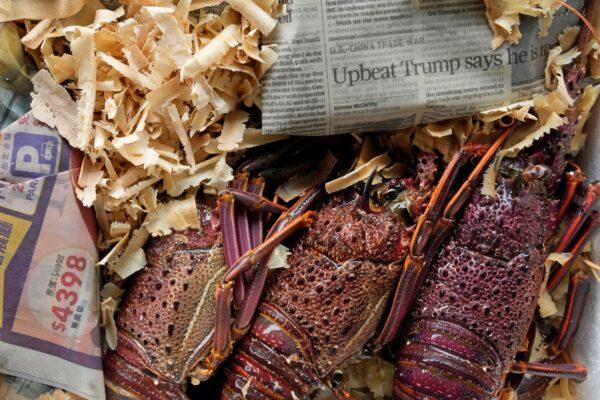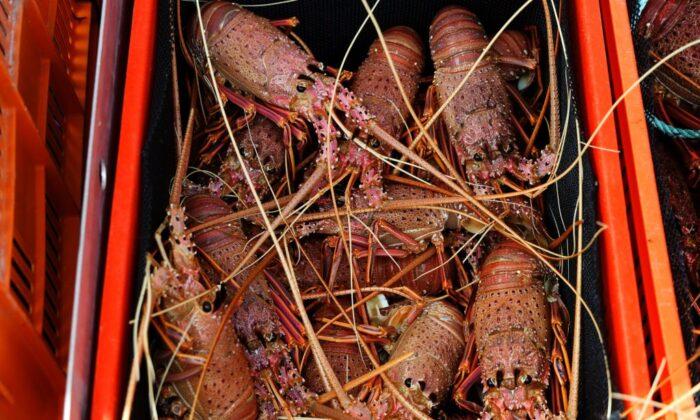A new market for Australian lobster has opened after a trade deal between Australia and India passed the Australian parliament on Nov. 22.
This follows a trade war with Beijing that saw Lobster, and other commodities, fall to a grinding halt in 2020 after an investigation into the origins of COVID-19 was pursued by then Prime Minister Scott Morrison.
The trade agreement will “enter into force 30 days (or another mutually agreed time) after the respective parties have confirmed in writing that they have completed their domestic requirements,” according to a statement by Australian minister for Trade and Tourism, Don Farrell.
The Australia-United Kingdom Free Trade Agreement (A-UKFTA) was also ratified on Nov. 22.
“These agreements will support our businesses to grow, to offer more employment opportunities, and will give Australian consumers more choice at the checkout,” Farrell said.
“We are ready to implement these deals and will continue working closely with the UK and Indian Governments to implement the trade agreements as soon as possible.”
Among the first companies to send lobster to India will be the Geraldton Fishermen’s Cooperative, Western Australia’s biggest lobster exporter.
Beijing’s Trade Spat
In 2019 and 2020, China accounted for around 91 percent of Australian rock lobster exports and bought in approximately AU$1.6 billion (US$1 billion) annually for the industry.The decline has resulted in production value falling to around 50 percent of its pre-pandemic level,” the department’s website states.
“Disruptions in the China market and the closure of the global hospitality sector because of COVID-19 have affected rock lobster exports. This led to an overall reduction in Australia’s rock lobster harvest and lower prices for exported rock lobsters,” the Austrade website states.
Beijing previously said its trade sanctions on Australian beef, wine, barley, timber, and coal, were due to poor quality control and pests, or other non-political reasons.

Other Markets for Australian Lobster
Despite Beijing’s ban, exports of Australian rock lobster to Thailand increased from $42,000 in 2020 to $9.4 million in 2021.This was despite lower demand for premium food products due to COVID-19.
Generally, Western rock lobster is the most popular export, followed by Southern rock lobster and ornate and tropical rock lobster.
Trade with India
The India-Australia Economic Cooperation and Trade Agreement (ECTA) is the first Free Trade Agreement India has struck with a major economy in over ten years.The India-Australia trade agreement is expected to increase bilateral trade to about US$45-50 billion in the next five years—this is from the existing US$31 billion.
Meanwhile, India will grant Australia any market access improvements it gives future free trade agreement partners for 31 services sectors, including higher education and tourism.
The two countries are also working to conclude an “ambitious Comprehensive Economic Cooperation Agreement” that will build on ECTA.
Further, India’s 150 percent wine tariff will be slashed for Australian wine over US$5 per bottle.
“The Australia-India Economic Cooperation and Trade Agreement (ECTA) is a great opportunity for Australian businesses as it will open up new markets to reach around 1.4 billion consumers in the world’s fastest-growing major economy,” according to Australia’s trade minister, Dan Farrell.
India is Australia’s ninth largest trading partner, while Australia is India’s 17th largest trading partner.
The Australian Trade and Investment Commission and Geraldton Fishermen’s Cooperative have been approached for comment.





